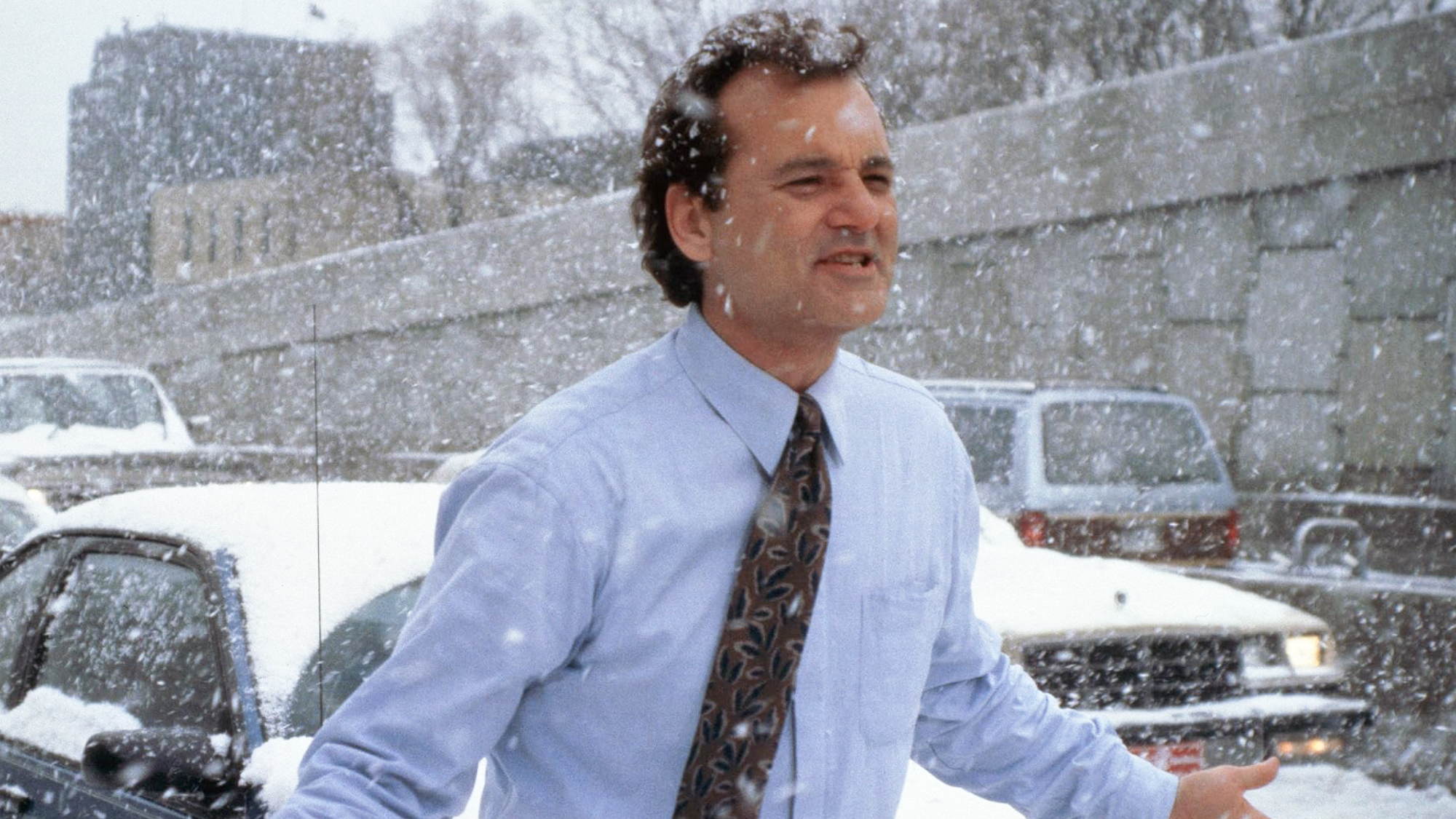Tom's Guide Verdict
The Walking Dead: A New Frontier is a beautiful game where your decisions really matter, but it's mostly the same as Seasons 1 and 2.
Pros
- +
Decisions that matter
- +
Fantastic voice acting
- +
Graphics channel comic book art
- +
Unpredictable story
Cons
- -
No new gameplay innovations
- -
Some new characters feel one-dimensional
Why you can trust Tom's Guide
Speaking as someone who remembers when the first issue of The Walking Dead came out back in 2003, it's hard for me to believe that the smart little comic has spawned a multimedia empire. Among the glut of Walking Dead TV shows and games, none has been consistently as good as Telltale's adaptation, which brings the comic's distinctive art style to life in a dark, character-driven drama with some genuine action, humor and pathos along the way.
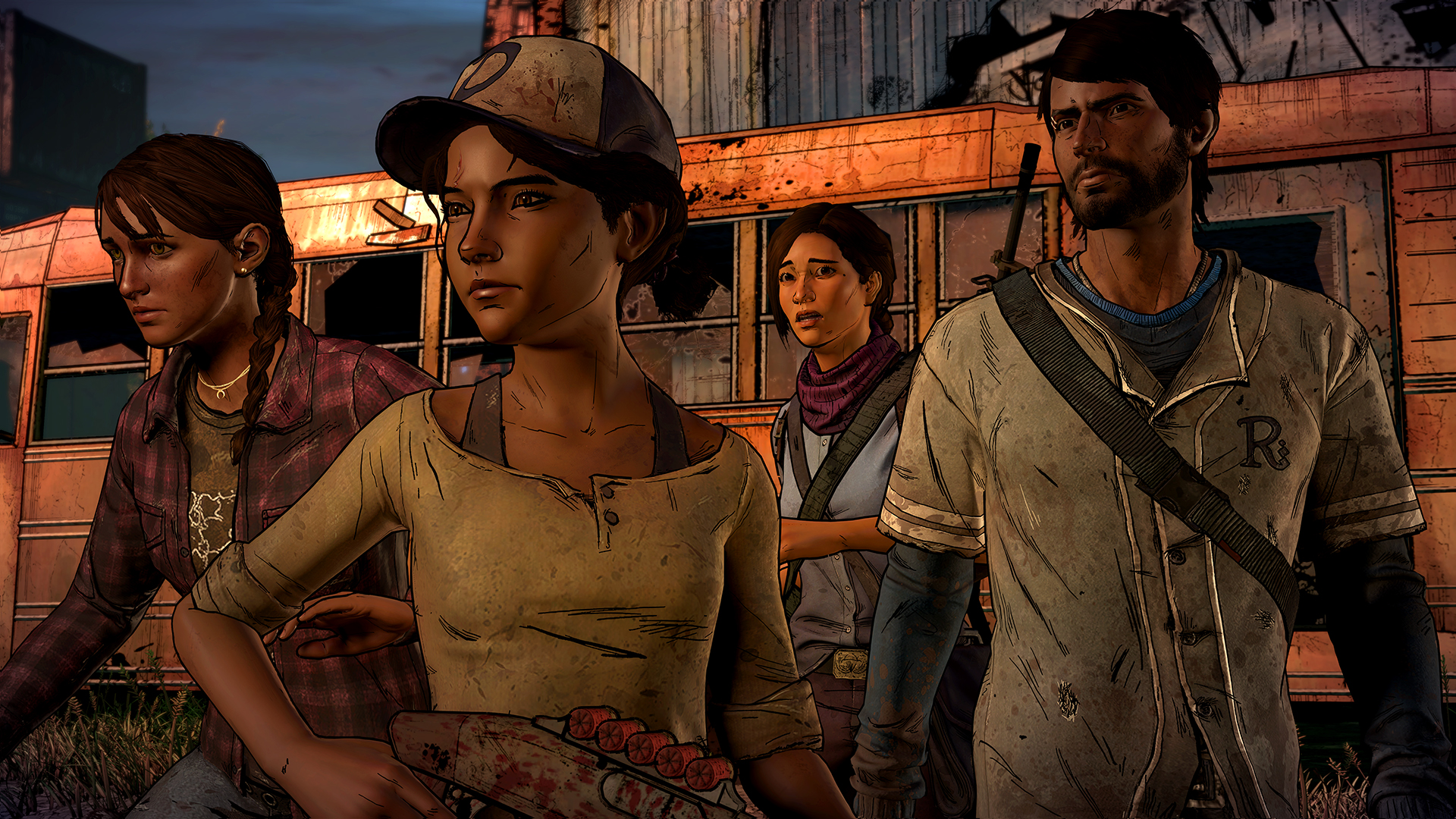
Season 1 introduced us to Lee Everett and his young ward, Clementine. Season 2 pitted a lone Clementine against the harsh realities of the zombie apocalypse. Season 3, titled A New Frontier, would have to advance Clementine's story while providing a jumping-on point for new players and avoiding a rehash of the first two seasons. If the first two episodes are any indication, Telltale has succeeded in doing that.
MORE: Best Gaming Headsets
A New Frontier (PC, Mac, PS4, Xbox One, iOS, Android; $25) isn't as groundbreaking as its predecessors, but it manages to marry an affable new cast to an unpredictable story. The characters aren't quite as memorable as their counterparts from the first two seasons, and the standard Telltale gameplay formula hasn't changed much since 2012, but A New Frontier: Episodes 1 and 2: Ties That Bind is still a beautiful game where your decisions really matter.
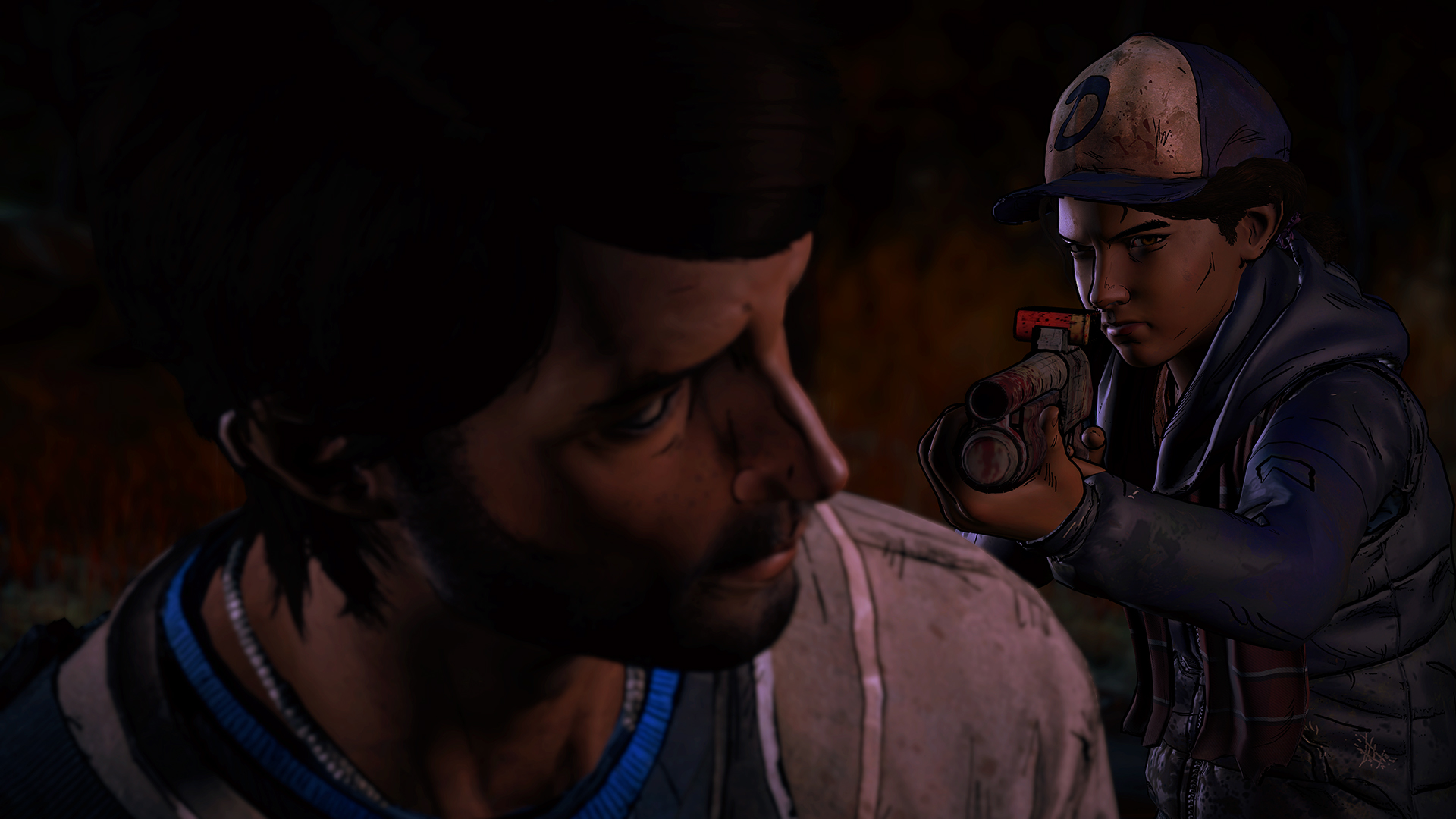
Gameplay
A New Frontier isn't just called The Walking Dead: Season 3, and right from the start, it's pretty clear why. Rather than just picking up where Season 2 left off with more of Clementine's trials and tribulations, you play as a new character: Javier Garcia. The zombie apocalypse hasn't started yet, and you'll spend a good 15 minutes or so just navigating Javi's complicated family life. Before long, though, you'll be back to fending off the undead, hunting for supplies and negotiating with other survivors, some of whom are helpful and more of whom are hostile.
If you've played a Telltale point-and-click adventure game before, you know the drill. In most areas, you can walk around, pick up objects and solve simple puzzles. Occasional action sequences, like fighting off zombies or running from militant survivors, require aiming and shooting, or timely button prompts. The series has always been light on traditional gameplay, and A New Frontier seems to have about the same dialogue-to-action ratio as its forbearers, for better or worse.
Where A New Frontier really delivers is in its dialogue and decision trees. A large part of the game is just listening and responding to dialogue, or making decisions of both the considered and split-second varieties that can have big impacts on the game's story.
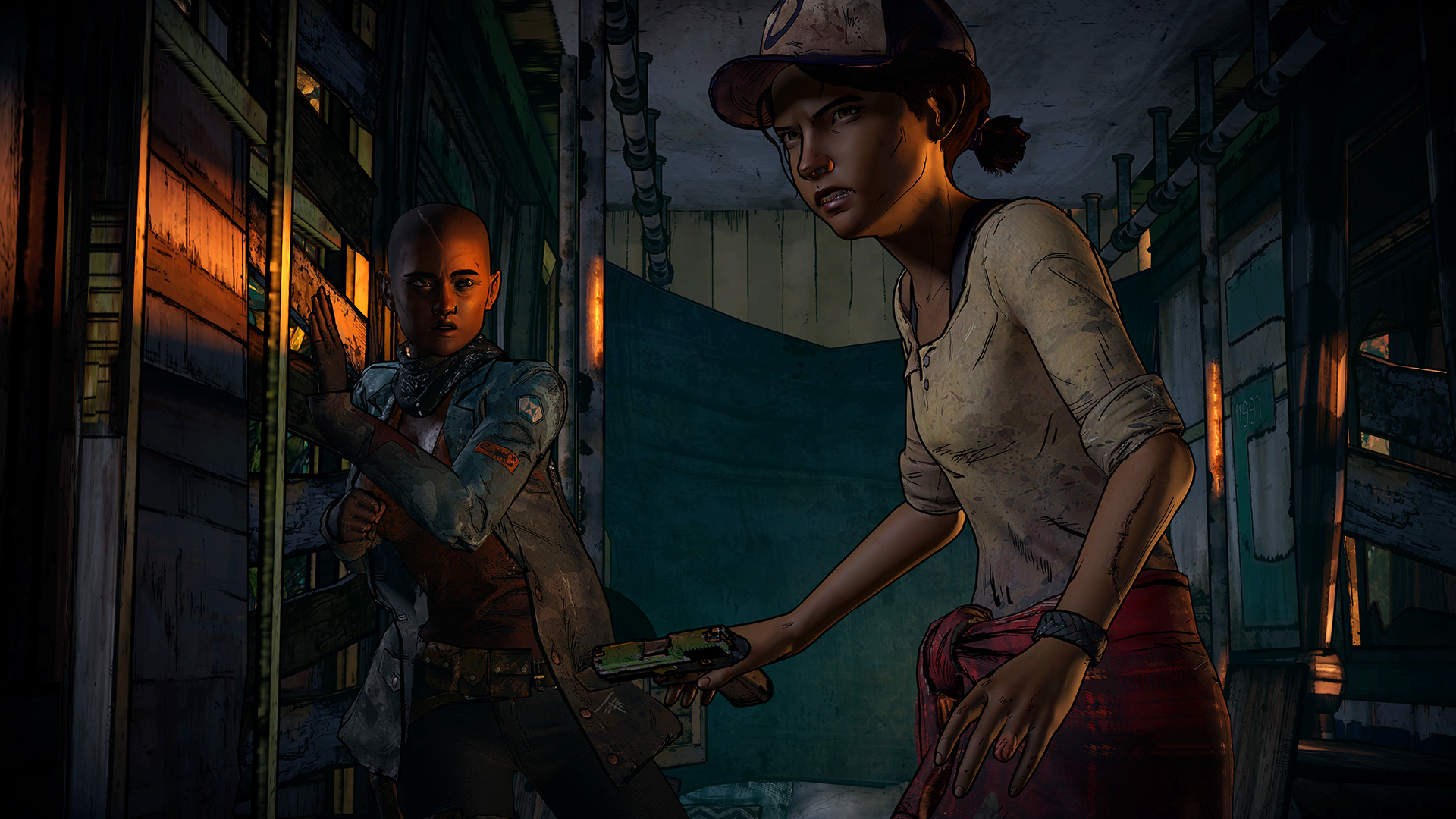
Decisions, Decisions
Will you curse out your brother, or accept his apology? He'll remember it either way, and treat you accordingly later on. You can rat out your new friend to curry favor with a town leader, or keep her secret safe to build her trust. Some decisions will even affect who lives and who dies, as well as where Javi goes and whether he attempts a peaceful or pugnacious solution once he's there.
Get instant access to breaking news, the hottest reviews, great deals and helpful tips.
Even better: If you play the game on the same system you used for Seasons 1 and 2, your save file will carry over and influence Clementine's behavior and backstory. (You can also reconstruct a fairly accurate facsimile in case you lost your data somewhere along the way.) Without spoiling anything, Clementine can look and act very differently when Javi meets her, depending on your choices.
This is where A New Frontier succeeds beautifully: by giving players a large amount of control over the story that plays out. There are no easy decisions, and no clear good-versus-evil morality divide. Will you run from raiders to save a friend, or stand and fight to potentially save a whole town? Will you kill or spare a former captor? Will you treat a stranger as a potential ally or a possible threat? The game doesn't judge you; it just adjusts accordingly. As your decisions accumulate throughout the next three episodes, each player could wind up with a subtly different experience (although, to be fair, many major plot points remain the same either way).
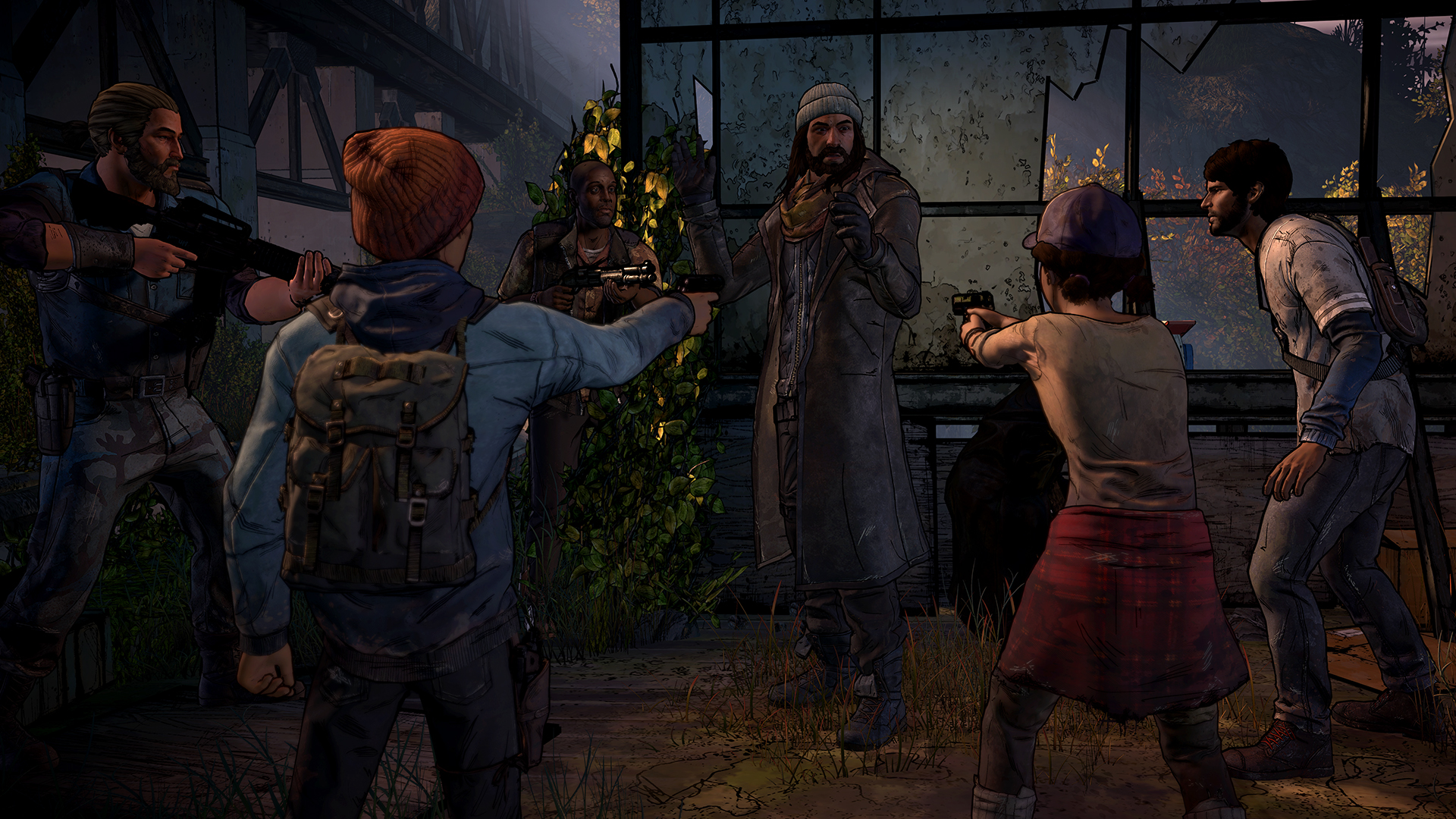
Story
Javier Garcia is not in a good place, either professionally or personally. Javi's promising baseball career took a dive when he got mixed up in a gambling scheme, he can't help care for his dying father, and his whole family is furious with him on both counts. Just when it seems as if things couldn't get any worse, the dead return to walk the Earth and … well, you know the rest.
Years later, Javi ekes out a meager existence, roaming the American Southeast in a van along with his niece, Mariana; his nephew, Gabe; and their stepmom, Kate. A supply run gone wrong forces Javi to team up with Clementine, a major player from the previous Walking Dead games. Together, the two come face-to-face with the New Frontier, a cult-like organization that promises a safe haven from zombies, but at a terrible cost.
To explain more of the story would venture into spoiler territory, to say nothing of the fact that players can alter how the story progresses considerably. Suffice it to say, it's classic Walking Dead territory — the same kind of challenges that Rick Grimes and his group of survivors in the comics would face. Comic fans will be particularly pleased to know that a well-known character gets an extended cameo. You'll know him when you see him.
On the other hand, the game faces the same problem as the comics: Some of the newer characters seem a little less intense and less defined than their late counterparts in earlier seasons. The compassionate Eleanor, the tough Conrad, the surly Gabe and the pragmatic Tripp are not quite as memorable as complex, rich characters like Kenny, Jane, Lilly and Carlos. Then again, there are still three more episodes for them to grow — the ones who are still alive, anyway.
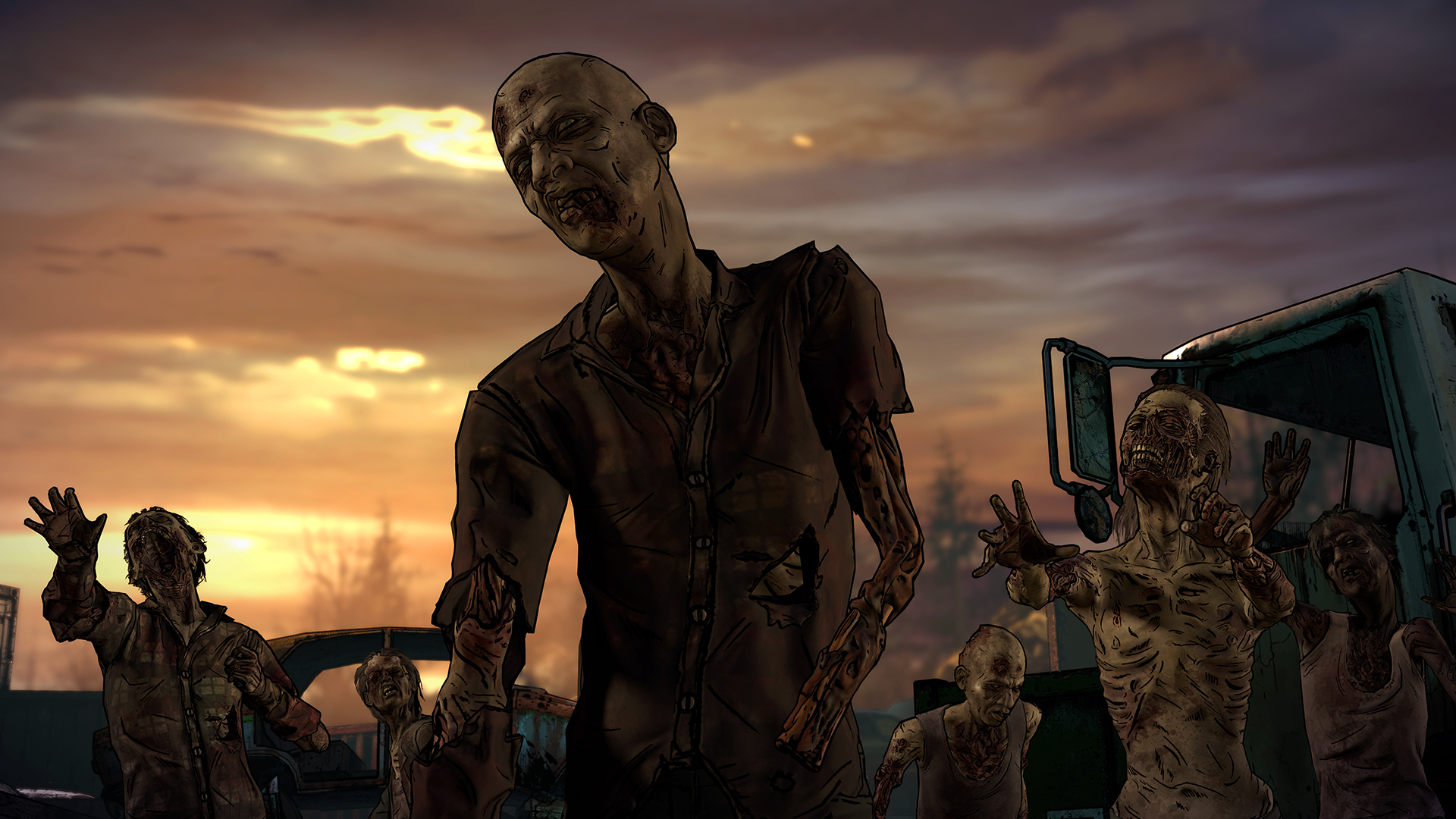
Graphics and Sound
Telltale has never tried to deliver cutting-edge visuals, and A New Frontier looks almost exactly like the last two games. The art style looks very similar to Charlie Adlard and Tony Moore's visuals for The Walking Dead comic books, but in color and motion. A New Frontier looks great, but so does the rest of Telltale's output. Take it for what it is.
Where A New Frontier excels is in its sound design. The music and sound effects pretty much just work, but the voice acting is a cut above that in most of the games on the market today. Melissa Hutchison has done a fantastic job of taking Clementine from a scared little girl into a hardened survivor, and Jeff Schine as Javi sounds believably scared, resolute or compassionate as the situation demands. There's not a single weak link in the cast, and every performance is both spirited and lifelike.

Bottom Line
Although things could change drastically in the last three episodes, A New Frontier is off to a strong start, and delivers exactly what Walking Dead fans have come to expect. The characters are likable (even if they're not quite as strong as before), the story is unpredictable, and anyone could live or die. (I would venture an educated guess that they'll mostly die, but I could be wrong.) While A New Frontier doesn't do anything new in terms of graphics or gameplay, you may as well criticize the comic for not reinventing its art style and central premise every month. It's the next chapter in an interesting, ongoing story. By this point, you're either sold or you're not.
Fans can rest easy knowing that A New Frontier is just as good as the games that preceded it. New players can jump in without having to know anything about the backstory. Either way, it's much more entertaining than living through a real zombie apocalypse.

Marshall Honorof was a senior editor for Tom's Guide, overseeing the site's coverage of gaming hardware and software. He comes from a science writing background, having studied paleomammalogy, biological anthropology, and the history of science and technology. After hours, you can find him practicing taekwondo or doing deep dives on classic sci-fi.
